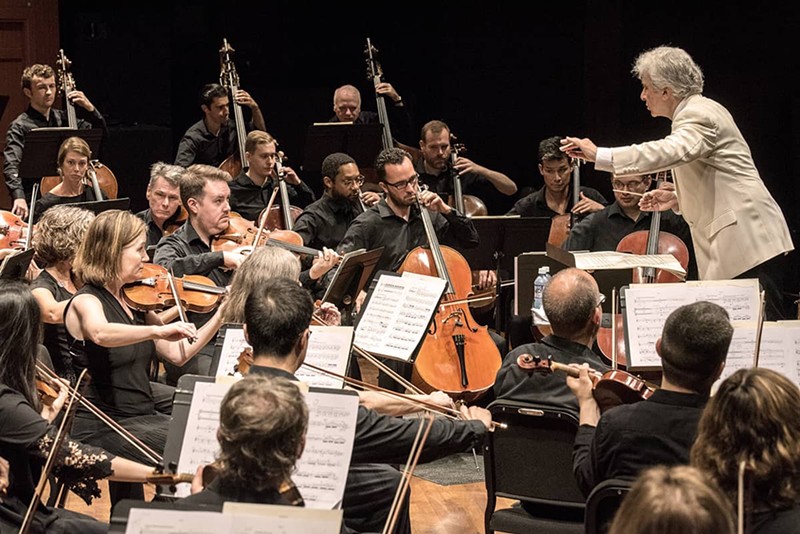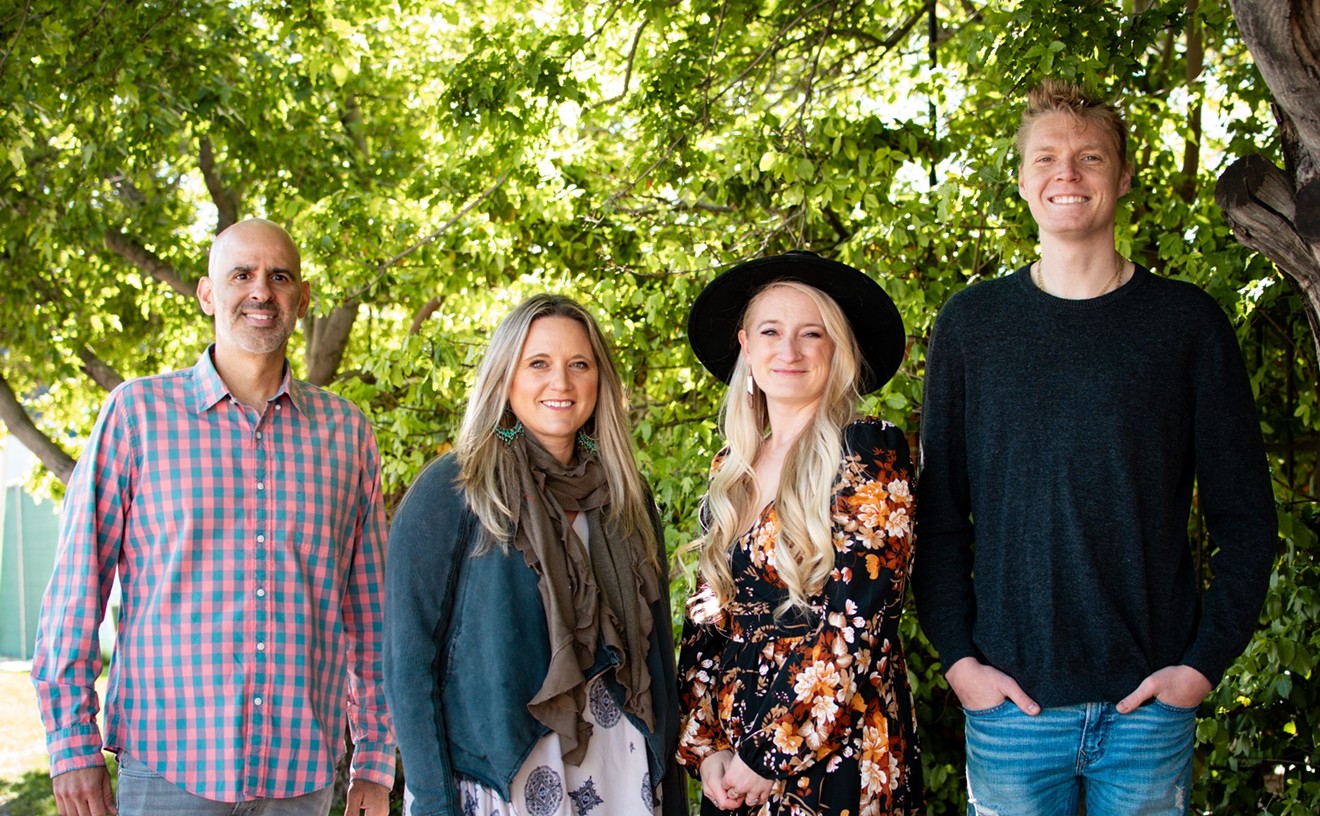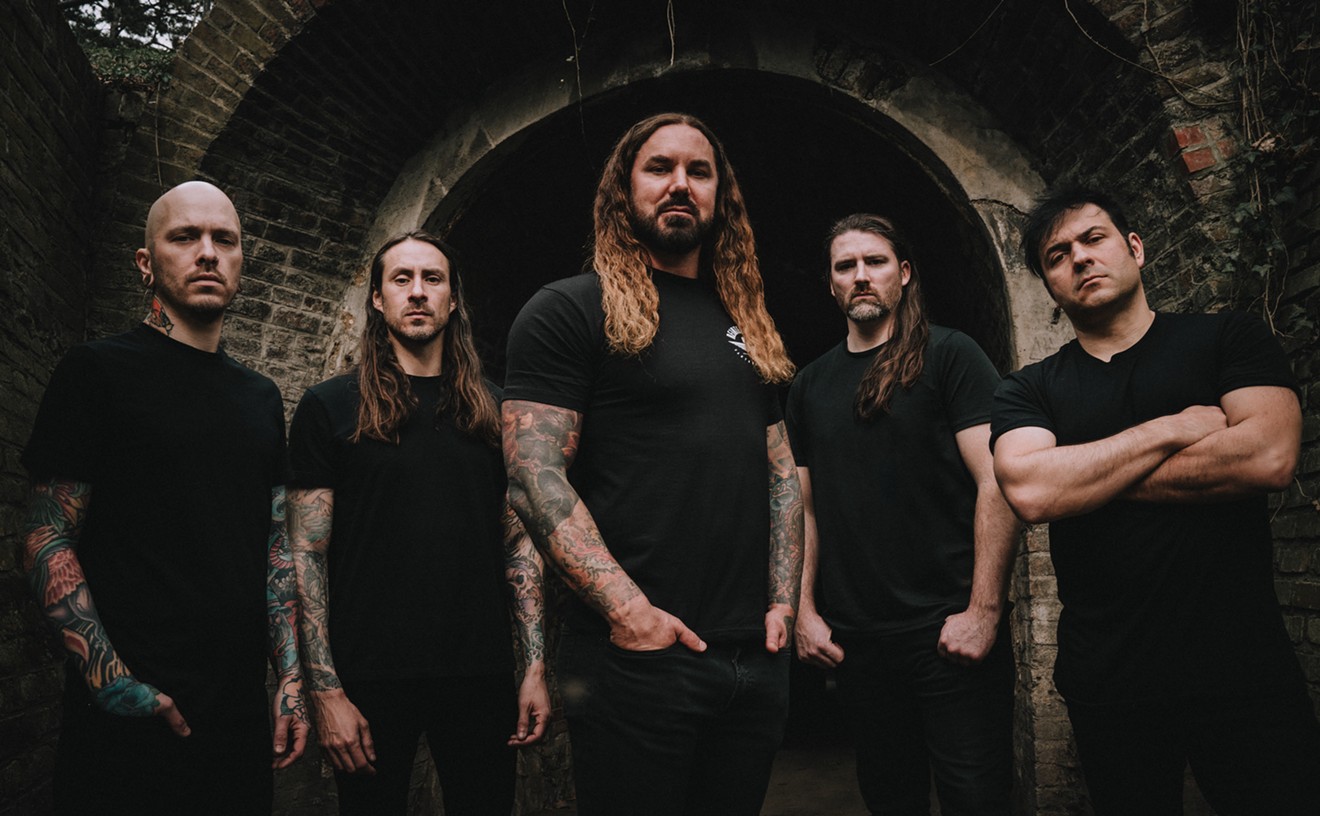The Colorado Music Festival has taken place in the shadow of Boulder’s Flatirons for the past 46 years. This year, the festivities run for six weeks at Chautauqua Auditorium, from Thursday, June 30, to Sunday, August 7, highlighting some of today's top classical minds. Participating musicians represent a total of 44 orchestras from 23 states, four provinces and three countries, offering a repertoire that ranges from classical interpretations of contemporary music, such as the work of leftfield beatsmith Flying Lotus, to Beethoven’s greatest compositions.
Started in 1976 at Boulder's First Presbyterian Church, the Colorado Music Festival was founded by University of Colorado Boulder head of conducting Giora Bernstein as a showcase for the Colorado Chamber Orchestra. Within two years, the festival moved to the then-recently restored Chautauqua Auditorium, where it won the first of five ASCAP Adventurous Programming Awards.
This year's programming is being selected by festival music director Peter Oundjian. With experience as a performer and conductor for some of the top institutions in the world, Oundjian brings a lauded background to the festival's legacy. While attending the Royal College of Music in London in 1975, he was awarded the Tagore Gold Medal by Queen Elizabeth, and at just 25 years of age, he was appointed adjunct professor of violin at Yale University. He became first chair violinist for the Tokyo String Quartet in 1981, a position he held for fourteen years, until focal dystonia in his left hand forced him to put his instrumental career aside.
The injury would transform the trajectory of Oundjian's orbit. Just one month after he left the Tokyo Quartet, André Previn, the renowned German pianist, invited Oundjian to conduct three concerts at the fiftieth anniversary of the Caramoor International Music Festival — an esteemed event where he would eventually become artistic director. Since then, Oundjian has held posts at institutions such as the Toronto Symphony Orchestra, the Detroit Symphony Orchestra, the Royal Scottish National Orchestra and the Amsterdam Sinfonietta. In 2022, he was named principal conductor of the Colorado Symphony.
Oundjian joined the Colorado Music Festival in 2018 as a consultant. “I couldn't believe I didn't know about it!” he says today. “I got a call something like a little over five years ago, which seems very recent, from an old friend named Alberto Gutierrez, the [festival's] artistic administrator, asking if I would be a consultant for the summer while they were searching for a music director.” That search didn’t last long, as a year later he accepted that title and became responsible for all of the programming, including this year's artist and composer-in-residence, Pulitzer Prize and five-time Grammy winner John Adams.
“John is an unbelievably brilliant composer, and his works are programmed probably more often than any contemporary composer today,” Oundjian says. “Originally, when he was a young composer, he was kind of experimenting a lot with minimalism, sort of like Steve Reich and Philip Glass, but he moved quite rapidly away from what we might call pure minimalism into a language which is very much his own.” The celebrated auteur will have six of his pieces performed over the course of the festival and will command the podium for two of them.
Grammy Award-winning group Takács Quartet, an act that Oundjian calls one of the greatest of all time, will be the festival's artist-in-residence. The now-Boulder-based quartet got its start 47 years ago in Budapest and consists of a rotating cast of members, with cellist and original member András Fejér being the only constant. The quartet started to gain international attention in 1977, when it won first prize and the critics' prize at the International String Quartet Competition in Évian-les-Bains, France. By 1983 it had relocated to the United States, and soon after was offered a residency at the University of Colorado Boulder, a position the quartet has held ever since. During its tenure, the Takács Quartet won three Gramophone Awards — one of the most coveted distinctions in classical music — in addition to the Grammy.
The quartet will have three performances over the course of the festival. It will open the festival with Adams’s Absolute Jest on June 30, which it will repeat the following night. The quartet will then play three pieces on July 5: Joseph Haydn’s String Quartet in F Major, Op. 77, No. 2, Samuel Coleridge-Taylor’s "Fantasiestücke for String Quartet, Op.5" and Antonín Dvorak’s String Quartet No. 13 in G Major, Op. 106.
Oundjian notes that a certain finesse is required to create a classical lineup that has mass appeal: “Whether you're programming for an orchestra for a whole season or for a festival, there are very few people who are going to come to all of the concerts. And those people will come to all shows, no matter what the programs are, because they just love the festival; they’re like family." In order to attract a variety of listeners, "you have to look for really interesting ideas and a lot of variety,” he says. “You have to strike an excellent balance between challenging an audience to listen to something they've never heard, and something familiar.”
The festival’s opening-night performance is a good example of merging familiarity with originality, Oundjian says. While the night is billed as "Takács Quartet Plays John Adams’ Absolute Jest," it comprises three different compositions from three composers, with Absolute Jest being the highlight. The first is "Fate Now Conquers," by the relatively young American composer Carlos Simon, which debuted in September 2020. Despite the work being contemporary, it was commissioned as a response to Beethoven's fourth, seventh and eighth symphonies, giving it a sense of familiarity for more stringent classical music fans. Beethoven’s influence is then infused with modern styles of music such as jazz, gospel and neo-romanticism — a lush demonstration of the juxtaposition Oundjian seeks in his curations.
The other two performances that evening are also vivid illustrations of merging old and new, with Absolute Jest being a vaguely minimalist interpretation of Beethoven’s grandiose symphonies and Dvorak's New World Symphony being the catalyst for many familiar modern compositions, including those made for Star Wars, Jaws and The Lord of the Rings.
Each year, the festival curates a series of premieres. One of these, "Dark Patterns," by Brooklyn-based composer Timo Andres, was specially commissioned for the festival. Other commissions include "Flying on the Scaly Backs of Our Mountains," by Wang Jie, and "Herald, Holler and Hallelujah!," by jazz great Wynton Marsalis.
The Colorado Music Festival also invites eight college-aged virtuosos to receive coaching and performance opportunities through a fellowship program. The program provides access to the festival’s premier guest-artist mentors, in addition to weekly performances with the festival orchestra. The fellowship program was developed with the intention to create diversity within classical music and includes pupils from across the cultural spectrum. This year's fellows include four members of Miami’s New World Symphony: Chava Appiah, James Zabawa-Martinez, Jacquelyn O'Brien and Ka-Yeon Lee. They will be joined by Yale’s Kate Arndt, award-winning Vera Quartet founder Justin Goldsmith, the Vancouver Symphony’s Byungchan Lee, and Juilliard’s Grace Takeda. All were chosen through an invitation-only process, selected by educators at North America’s top musical conservatories.
The festival’s early success came from its ability to spot emerging talents and recruit them for its orchestra — a tradition that carries on with the festival’s association with the Center for Musical Arts. This Lafeyette-based nonprofit’s mission is to provide music education for all ages, across the spectrum of music. During the festival, both Oundjian and the billed artists will teach classes and give performances at the center, an experience that the conductor says is invaluable. “It's actually really important that these young kids, who may have only just started playing, could possibly have exposure to some of the greatest musicians in the world. Because that's so stimulating, right?” Oundjian asks rhetorically. “It can be a real inspiration.”
Colorado Music Festival, Thursday, June 30, to August 7, Chautauqua Auditorium, 900 Baseline Road in Boulder. Tickets are available at coloradomusicfestival.org.
[
{
"name": "Air - MediumRectangle - Inline Content - Mobile Display Size",
"component": "12017618",
"insertPoint": "2",
"requiredCountToDisplay": "2",
"watchElement": ".fdn-content-body",
"astAdList": [
{
"adType": "rectangle",
"displayTargets": "mobile"
}
]
},{
"name": "Editor Picks",
"component": "17242653",
"insertPoint": "4",
"requiredCountToDisplay": "1",
"watchElement": ".fdn-content-body",
"astAdList": [
{
"adType": "rectangle",
"displayTargets": "desktop|tablet"
},{
"adType": "rectangle",
"displayTargets": "desktop|tablet|mobile"
}
]
},{
"name": "Inline Links",
"component": "18838239",
"insertPoint": "8th",
"startingPoint": 8,
"requiredCountToDisplay": "7",
"maxInsertions": 25
},{
"name": "Air - MediumRectangle - Combo - Inline Content",
"component": "17261320",
"insertPoint": "8th",
"startingPoint": 8,
"requiredCountToDisplay": "7",
"maxInsertions": 25,
"watchElement": ".fdn-content-body",
"astAdList": [
{
"adType": "rectangle",
"displayTargets": "desktop|tablet"
},{
"adType": "rectangle",
"displayTargets": "desktop|tablet|mobile"
}
]
},{
"name": "Inline Links",
"component": "18838239",
"insertPoint": "8th",
"startingPoint": 12,
"requiredCountToDisplay": "11",
"maxInsertions": 25
},{
"name": "Air - Leaderboard Tower - Combo - Inline Content",
"component": "17261321",
"insertPoint": "8th",
"startingPoint": 12,
"requiredCountToDisplay": "11",
"maxInsertions": 25,
"watchElement": ".fdn-content-body",
"astAdList": [
{
"adType": "leaderboardInlineContent",
"displayTargets": "desktop|tablet"
},{
"adType": "tower",
"displayTargets": "mobile"
}
]
}
]











